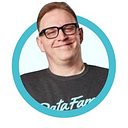A Week of Wake-Up Calls | Lessons From Two Medical Emergencies
In the span of just one week, I found myself navigating not one, but two significant health scares — one a full-blown medical emergency, and the other a potential crisis. This experience was a turning point in my life, forcing me to confront my lifestyle choices, my relationships with others, and how I handle my mental well-being. It was a stark reminder of the importance of being vigilant about physical and mental health and the value of community support. As someone who has often been self-reliant to a fault, this period taught me profound lessons that have reshaped my outlook on life. Here are the ten most important lessons learned in no particular order.
1. The Importance of Vigilance in Personal Health
One of the most critical lessons I learned is being vigilant about my health. I realized that if something feels wrong, it’s essential to seek medical attention immediately. Ignoring symptoms or brushing them off as minor inconveniences can lead to severe consequences.
2. The Power of Community Support
The outpouring of support from my family, #DataFam, friends, and the Tableau community was overwhelming. For the first time, I felt genuinely accepted and loved by a large group of people. This sense of community made a world of difference in my recovery, and I am incredibly grateful for it.
3. The Mental Health Benefits of Letting People In
In the past, I tended to push people away when I was unwell, preferring to deal with things independently. This time, however, I allowed myself to be vulnerable and let people I trust support me. The mental health benefits were immense. Feeling cared for and supported made the experience far less isolating.
4. The Reality of a Sedentary Lifestyle
Before this incident, I lived as if I were still in my 20s, indulging in fattening foods and beverages and neglecting exercise. This lifestyle caught up with me, contributing to my medical issues. I learned the hard way that maintaining a healthy lifestyle is crucial, no matter your age. Even though these recent issues cannot be tied to this, it certainly could not have helped.
5. The Importance of Staying Mentally Active
Being forced to rest and avoid using my wrist made me realize how much I rely on mental activity and writing to keep myself engaged and fulfilled. I quickly became restless, longing to contribute and make an impact again. This experience reinforced the importance of staying mentally active for both cognitive and emotional well-being.
6. Learning to Say “No”
During my recovery, I had to turn down several opportunities, something that was very difficult for me. I learned that it’s okay to say “no” or “not yet” and that the world will continue without me. This was a humbling experience and a reminder that it’s okay to prioritize my health.
7. Trust Your Instincts and Question When Necessary
While it’s crucial to trust healthcare professionals, I also learned the value of questioning advice that doesn't pass the “sniff test.” It’s okay to ask for clarification or seek a second opinion. Ultimately, I am responsible for my health, and if something feels off, it’s my duty to pursue further investigation.
8. The Strength of a Good Team
I cannot express enough gratitude for my team at Moderna, who stepped up in my absence. It was heartening to see how well they managed without me, and it made me appreciate the strength and capability of a good team. Their support allowed me to focus on my recovery without worrying about work.
9. The Power of Positive Messages
The sheer number of messages I received from people genuinely concerned about my well-being was staggering. It was too much to respond to individually, so I wrote this blog post. The positivity and encouragement I received played a significant role in my mental recovery. This was bolstered further by Sarah Bartlett organized Kudoboard (feel free to add if you have a kind note to share).
10. The Journey Towards Self-Acceptance
As an autistic person, I have always struggled with feeling accepted. However, for the first time in my life, I feel safe, accepted, and even loved by a community. This journey has taught me that you can eventually find what you need if you never stop trying.
In closing…
I am indecently fortunate—I have a wonderful job, supportive family, global friends, and incredible medical care.
However, facing these health challenges head-on has been a transformative experience. I’ve learned the importance of vigilance, the power of community, and the necessity of mental activity in my life. These lessons have shaped my approach to health and deepened my connections with those around me. This journey has reinforced that I am not alone and that there is immense value in leaning on others when needed. As I move forward, I am committed to maintaining a healthier lifestyle, both mentally and physically, and continuing to nurture the relationships vital to my recovery. I hope that by sharing my story, others may find encouragement to prioritize their well-being and seek the support they need.
I am improving significantly now and will return to work on the 23rd. Thanks for your positive vibes—they made this nightmare a little less scary.
Adam Mico
Twitter | LinkedIn | Tableau Public | tData Doctor GPT (focusing on Tableau) | VizCritique Pro GPT | Data Mockstar GPT | tBlueprint Navigator for Tableau Customer Success GPT | Won’t You Be My Neighbor GPT?
Note: My book, “Tableau Desktop Specialist Certification,” is available for order here.
